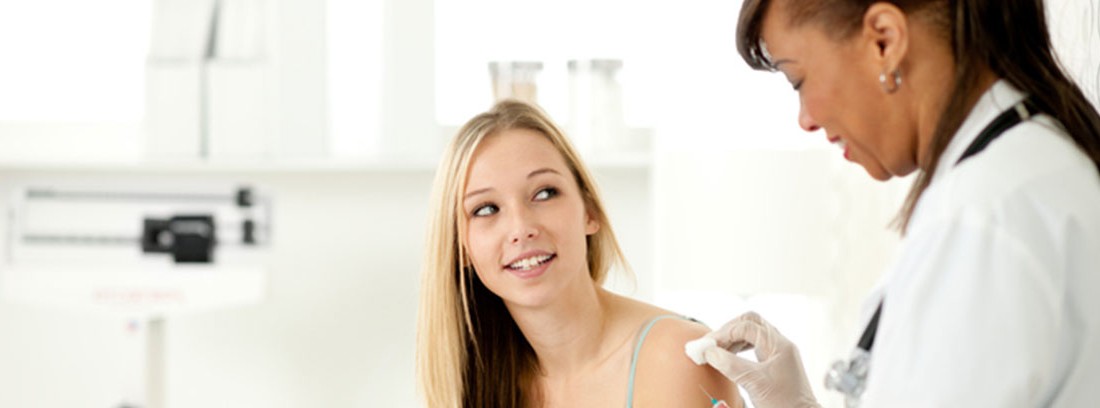The Human Papillomavirus Vaccine

Some women infected with the human papillomavirus will never develop a lesion, but others could develop a premalignant or malignant lesion of the cervix, for this reason it is advisable to human papillomavirus vaccine.
How does immunity work after infection?
When we suffer an infection by a virus or bacteria, our immune system kicks in and we produce antibodies. From the outset, antibodies called IgM are produced, which are rapid but less specific and of a limited duration.
Then the IgG antibodies are produced that are more specific and last a lifetime, so that if the same virus enters the body again, the antibodies neutralize it before the disease occurs. This is what happens, for example, with the.
How do human papillomavirus vaccines work?
They are based on this immune response. There are two types of vaccines. On the one hand, there are live attenuated virus vaccines, which introduce live but weakened viruses to prevent them from causing disease but do induce the production of antibodies so that, in the event of coming into contact with that virus again, they can be quickly eliminated. .
On the other hand, there are vaccines that carry only the allergen (not the entire virus), which is the part that stimulates immunity, and thus antibodies are produced without the risk of producing the disease.
What virus does the HPV vaccine protect against?
There are two HPV vaccines on the market. One of them carries four HPV viruses: two of them, 11 and 6, are responsible for 90% of sexually transmitted warts, condylomata, and the other two, 16 and 18, are responsible for 70% of cervical cancers.
The other vaccine carries five viruses, which are responsible for 85% of the.
Who is the vaccine for?
The HPV vaccine is indicated in all women who do not have immune diseases before initiating sexual intercourse. If this objective is achieved, the presence of HPV in the population and therefore the risk of cervical cancer will be drastically reduced.
If you have not been vaccinated at the time of maximum effectiveness, that is, before starting relationships, it can be done until you are 46 years old. If the woman already has one of the viruses contained in the vaccine, she will not obtain protection against this virus, but if she has not been infected with any HPV contained in the vaccine, the protection is maximum.
How is the human papillomavirus vaccine given?
Both vaccines are intramuscular and are administered in the arm in three doses, one of the vaccines in the 0.2 and 6-month schedule and the other in the 0.1 and 6-month schedule.
- You can be infected with the virus but never develop a lesion or develop a premalignant or malignant lesion of the cervix.
- The vaccine is indicated in all women who do not have immune diseases before initiating sexual intercourse.
- In case of not having been vaccinated at the moment of maximum effectiveness (before initiating sexual intercourse), it can be done up to the age of 46.
(Updated at Apr 14 / 2024)